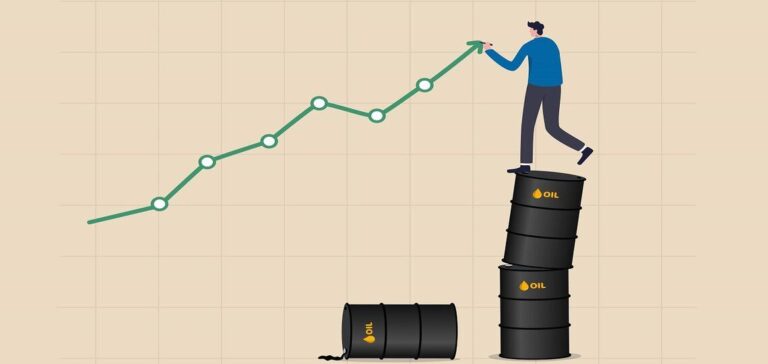Oil prices closed at their highest level in over nine months on Tuesday, boosted by announcements that Russia and Saudi Arabia would be extending their cutbacks, which tightened up an already tense market.
Oil prices at their highest since mid-November: Analysis of recent trends
The price of a barrel of Brent crude oil for November delivery gained 1.16%, ending the day at $90.04, its highest level since mid-November. U.S. West Texas Intermediate (WTI), due in October, rose 1.26% to $86.69, its highest closing price since mid-November.
Saudi Arabia has pledged to maintain its production cut of one million barrels per day (bpd) until the end of December, having already observed it from July to September, according to the Ministry of Energy. He specified that this strategy would be “re-examined on a monthly basis”, leaving himself free to further increase or reduce the target of around nine million barrels per day.
Meanwhile, Russia has promised to deprive the market of 300,000 bpd of exports over the last three months of the year, after cutting its volumes by 500,000 barrels a day in August and 300,000 in September.
“The fundamentals were strong before this, but this is a turning point,” commented Phil Flynn of Price Futures Group. “This shows that OPEC (Organization of the Petroleum Exporting Countries) and Russia are determined to reduce their supply and show that they dominate the world market.”
Rystad forecasts: Shortfall of 2.7 million barrels per day, tensions on the oil market
Rystad analysts are now forecasting a shortfall of 2.7 million barrels per day in supply versus demand in the final quarter of the year. The drastic measures taken by the Saudis and Russians are having an even greater impact on the market, as no major producer appears to be in a position to make up all or part of this deficit. In the USA, the number of wells in production has fallen to a 19-month low, and the industry is cautious, particularly in the shale oil sector.
“The big question is whether the Saudis are worried about demand” in the fourth quarter, “particularly in China, to the extent that they are taking pre-emptive action”, Rystad’s Jorge Leon wondered in a note.
But for Phil Flynn, “demand is not the problem. It remains at record levels”, despite recent poor activity indicators in Europe and China, while the US economy is slowly decelerating. The fact that the market is in a situation of marked “backwardation”, i.e. with much higher prices for upcoming delivery than for a December or January maturity, illustrates the current imbalance, Phil Flynn points out.
“There is some nervousness, fuelled by the fear that supply will not be sufficient in a few months’ time”, insists the analyst. “People are buying now to stock up.”
Why does it matter?
From an economic, financial and energy market point of view, the rise in oil prices, boosted by production cuts by Russia and Saudi Arabia, signals a significant change in the global oil market. This initiative has led to an expected shortfall in oil supply relative to demand over the coming months.
As major oil producers struggle to make up the shortfall, this poses challenges and opportunities for a variety of sectors. It also reflects ongoing concerns about the stability of the oil market, particularly in the face of economic fluctuations in key regions such as China and Europe.






















